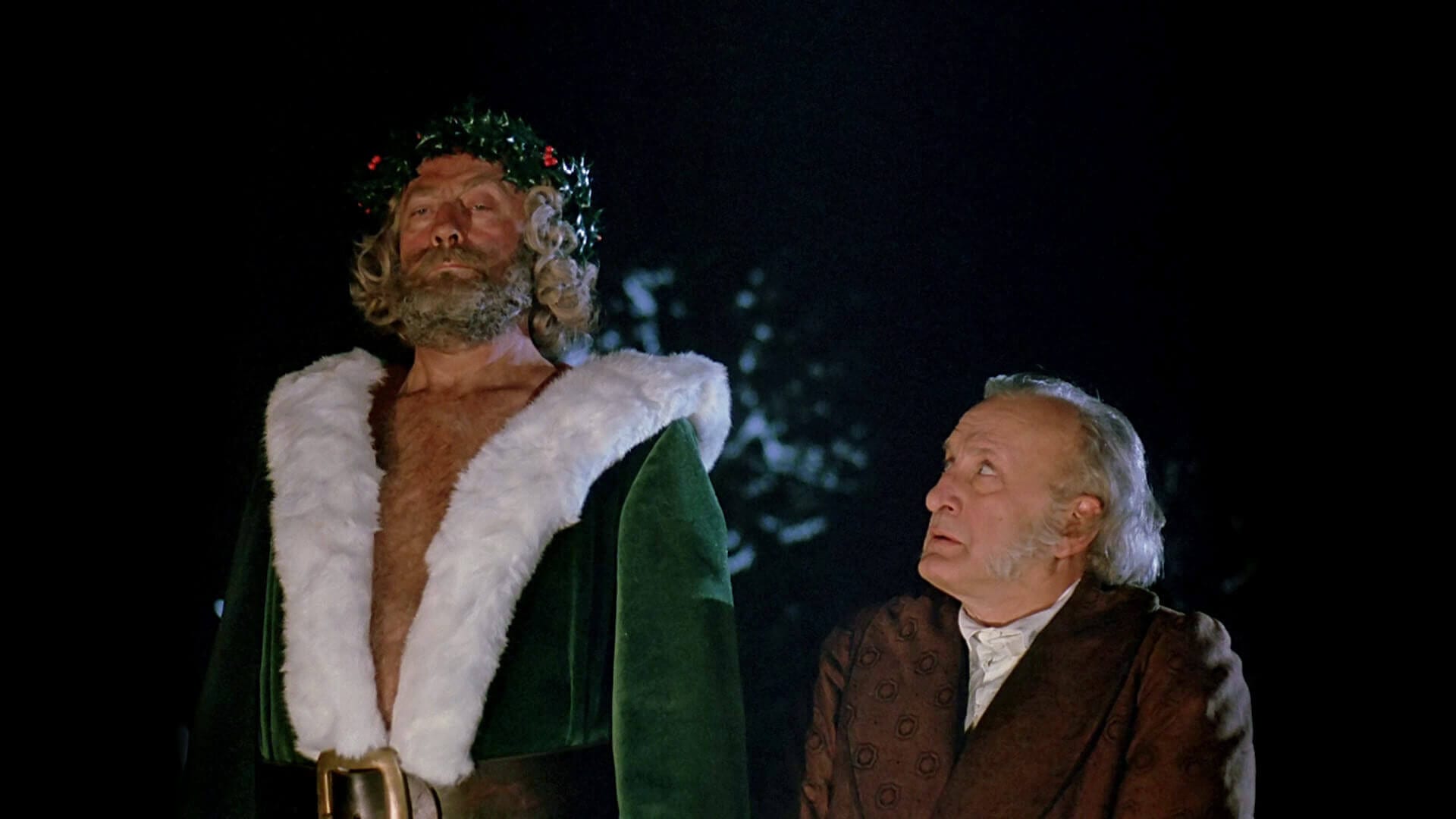You Should Be Watching: All the Scrooges/A Christmas Carols
Welcome back to You Should Be Watching, normally the home of underappreciated gems and forgotten classics. This week, however, we’ll be doing something a little bit different. In thinking about our theme of Christmas movies, it occurred to me that you can’t really even discuss Christmas movies without coming across some iteration of Charles Dickens’ A Christmas Carol and Ebenezer Scrooge, one of the most iconic literary figures in all of fiction. I’ve always found it interesting seeing which version is someone’s favorite, and the answer is different from almost every person you ask. That’s really cool, not only that this story has been adapted so many times, but that so many versions are that good. I’ve seen many film adaptations and TV specials, and I thought it would be interesting to compare the various renditions, much like I did with Halloween movie monsters. For the sake of simplicity, and because I want to compare movies that at least fit into the same category, we’ll be excluding versions that take liberties with the setting (Scrooged), as well as movies that put some twist on the story, such as starring a woman named Carol (insert eye-roll here) or representing the ghosts as a man’s past girlfriends.
When it comes to judging adaptations, there’s a lot to be considered. You can judge based on how much of the text is literally translated to the screen, but this often represents a misunderstanding of the medium. Film and books don’t work in the same way. You can have a long sprawl of dialogue in a book but, when making the film, this will have to be edited down or substituted entirely for something else. This isn’t because film is a less intelligent art form than the novel, but because film is itself a visual medium. It’s terribly boring to watch a movie where people are always explaining things or proselytizing to the audience. Even if it’s the most subtle facial expression, something compelling needs to be happening on screen to hold the audience’s attention. Therefore, it’s a little more intuitive to judge the adaptation of a work by how well it maintains the original tone and spirit of the story. Even still, you can judge it as entirely separate from the story it’s based on, purely due to how well the movie is made. I usually come to two conclusions if I’ve read the source material before: one based on how well the characters and general ideas were translated, and one on how good it is as a standalone movie. The film versions of Dickens’ A Christmas Carol vary widely across these spectrums, despite, for the most part, being a very faithful group of adaptations. Let’s take a look.
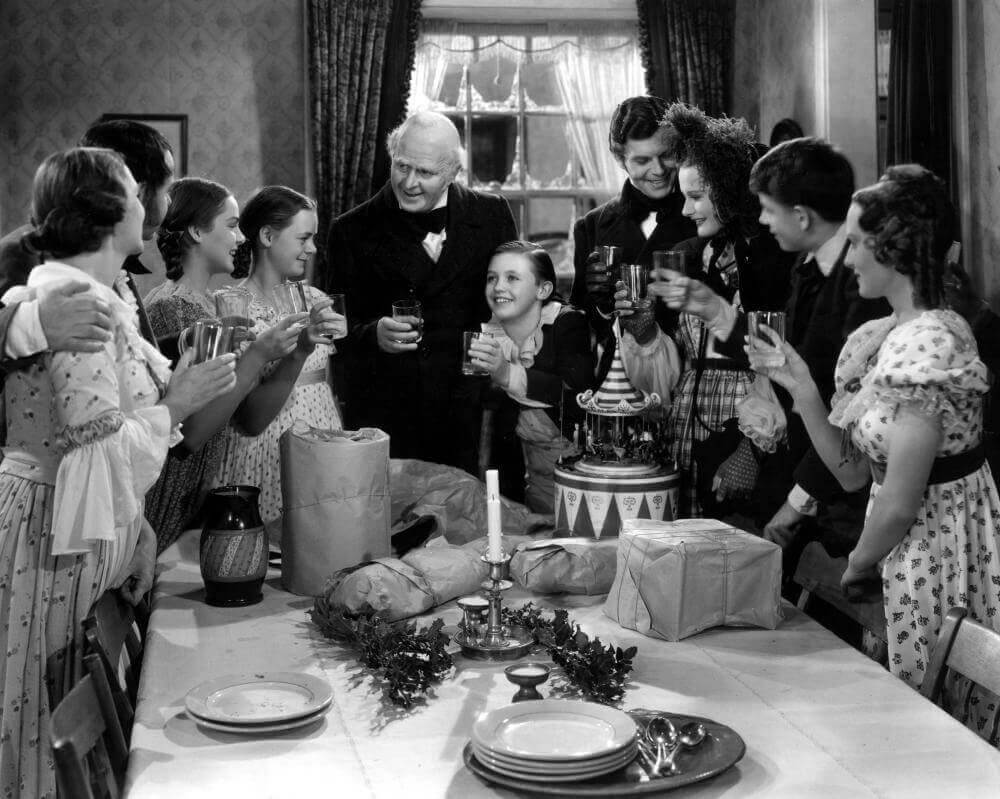
A Christmas Carol (1938) – Starring Reginald Owen
There were film adaptations of A Christmas Carol prior to the 1938 version starring Reginald Owen, some of them lost, but it is the earliest version I’ve seen. I knew Reginald Owen as Admiral Boom in the original Mary Poppins, but this is the only film in which I’ve seen him star. I don’t want to be a hater, but I really didn’t care for this version or his performance in it. I love seeing different interpretations of stories I enjoy, so when this one popped up on demand, I was elated. However, neither Owen nor the film itself seem to take the material very seriously. Scrooge starts out a grumpy curmudgeon, of course, but everything from his voice to the way he moves seems almost comedic. There are other elements in the film that contribute to this problem; Tiny Tim looks to be about 14, and not small for a 14-year-old either. He doesn’t look sick or weak, and when he exclaims, “God bless us, every one!” it’s not in the voice of a suffering child, but a healthy young man. The story’s darker elements are glossed over in lieu of showing children sledding and laughing, tripping Scrooge as he passes. Even the Cratchit household isn’t quite as poor as in the book and other film versions; there’s a montage near the beginning of Bob purchasing all manner of food and baubles for the family’s celebration. Some other versions have had similar scenes, but they were handled differently, and as such, we’ll come back to this. Even in the very end, when Scrooge emerges from bed a changed man, the way he communicates this to the audience is ridiculous. He literally says, “I do like Christmas!” In other versions, Scrooge jumps around and exclaims like a child at play, but it feels sincere and earned. In this one, the drama is declawed, and when something mildly sad or bleak happens, they rush over it and get back to the laughs pretty quickly. These choices could have been influenced in part by the fact that there was enough bad in the world, between the (admittedly near the end) Great Depression, and Hitler on the rise in Europe. Regardless, the lighter moments and uplifting ending of the story are dependent on darker moments such as Tiny Tim’s potential death and Scrooge seeing his own grave. This film has good intentions, but ultimately, it doesn’t have the magic of later iterations.
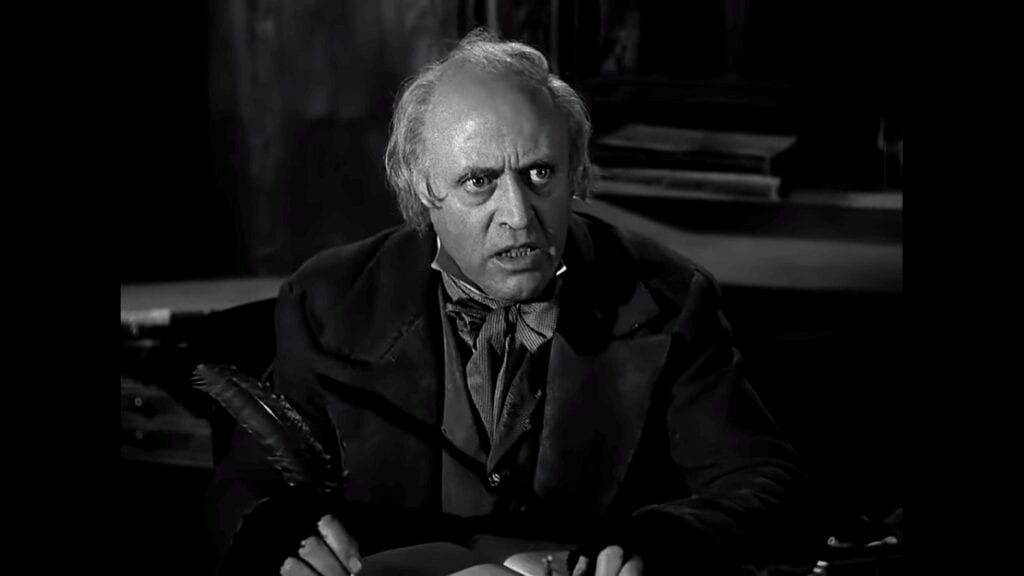
Scrooge (1951) – Starring Alastair Sim
Often cited as the best A Christmas Carol film ever made, this movie was released in Britain under the title Scrooge and later re-branded A Christmas Carol for the American market. This is a great film, and one of the best at keeping all the essential elements intact. This version includes the scene in which Scrooge betrays old Fezziwig, a plot thread that’s often left to implication. Sim is also sublime in the role, and one of the best Scrooges I’ve seen. Unlike poor Reginald Owen, he knows when and how to be silly for the story and his character arc to be believable and effective. In this case, he’s also surrounded by a fantastic supporting cast: Mervyn Jones portrays a likable Bob Cratchit, Disney legend Hermione Baddeley (Ellen the maid in Mary Poppins, Madame in The Aristocats) portrays Mrs. Cratchit, and Michael Hordern (who would go on to play Scrooge in a 1977 TV version) plays a deliciously creepy Jacob Marley. In fact, everyone in this movie is just about perfect; there are too many to name, and most likely wouldn’t be recognized from much anymore. This is probably my second or third favorite version of A Christmas Carol, and I’d say that it does deserve the high praise it gets.
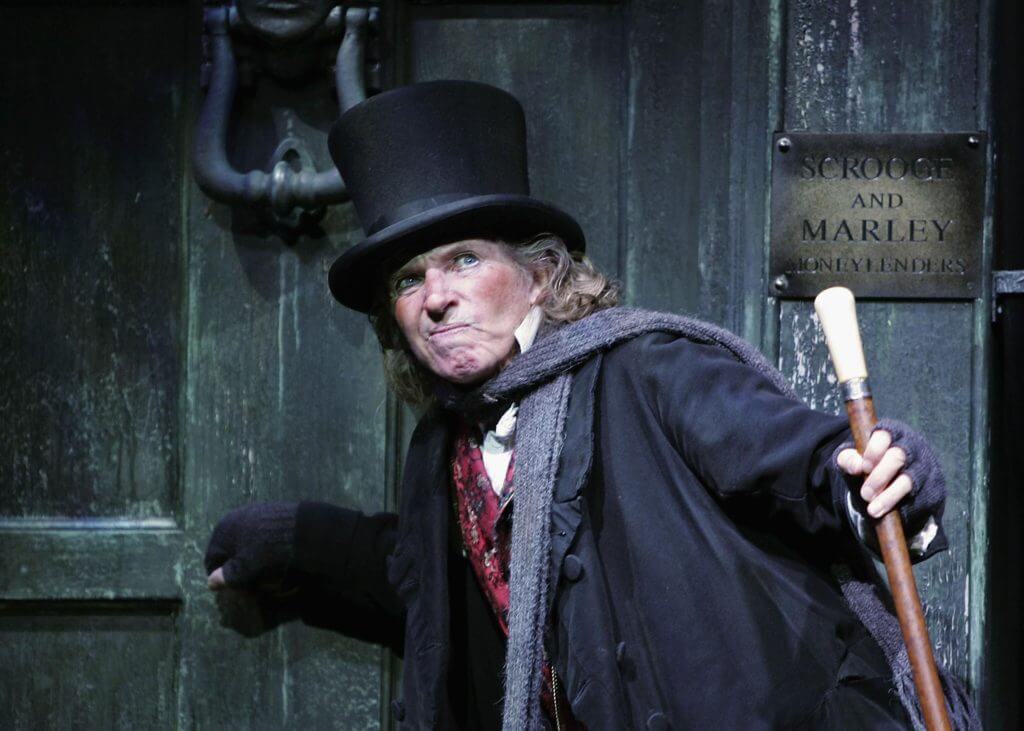
Scrooge (1970) – Starring Albert Finney
For years, this one was a blind spot for me, a film that was on my radar but I could never find to watch for free. Albert Finney is one of my dad’s favorite actors, and this year he ordered the movie on DVD. Scrooge is quite a unique take on the story. Most film versions of A Christmas Carol have employed song to some extent, usually with carolers in the street. This version is a full-blown musical and manages to make light of the story through song and dance. However, it’s quite different from the unlikable goofiness of the 1938 version. The songs stop when they need to, and the characters are given time to reflect on things such as Tiny Tim’s fate. I also think it’s of note that, unlike the Reginald Owen version, the comedy in Scrooge is quite good; the song “Thank You Very Much” had the whole family in stitches from the start. The film has a sick sense of humor that’s easy for me to appreciate, and it knows when to reign it in for a moment of introspection or important dialogue. I also quite like David Collings in the role of Bob Cratchit. This film takes some creative liberties, such as showing Marley’s Ghost (Alec Guinness, aka Obi-Wan Kenobi) escorting Scrooge directly into Hell rather than just the Ghost of Christmas Future revealing his gravestone to him. However, when the story has been adapted so many times, and usually more or less shot-for-shot, I can appreciate a surprising deviation like this. The makeup in this film is spectacular; Albert Finney was actually pretty young in 1970, but the way they age him up is totally believable. His performance adds believability to the aging as well, and he’s quite funny at times too. This version has a montage, like I mentioned, with Bob making pre-Christmas purchases through town. However, in this version, the shopkeepers all give Bob special discounts or, in some cases, give him extra product. The point here seems to be that he’s spending everything he has to make Christmas good for his children, and everyone in town loves Bob and the family so much that they’re willing to pitch in toward the effort. It also may be a show of Christmas goodwill from the vendors. This is in stark contrast to the 1938 version, where it seems like the Cratchits are well-to-do. Overall, Scrooge isn’t my very favorite version, but it is a lot of fun, and I can admire the changes it does make. It manages, in my opinion, to keep the story’s message and spirit intact, between the spectacular musical numbers and visits to the Underworld. Likewise, Albert Finney isn’t my favorite Scrooge, but he is very good and doesn’t disappoint or anything like that.
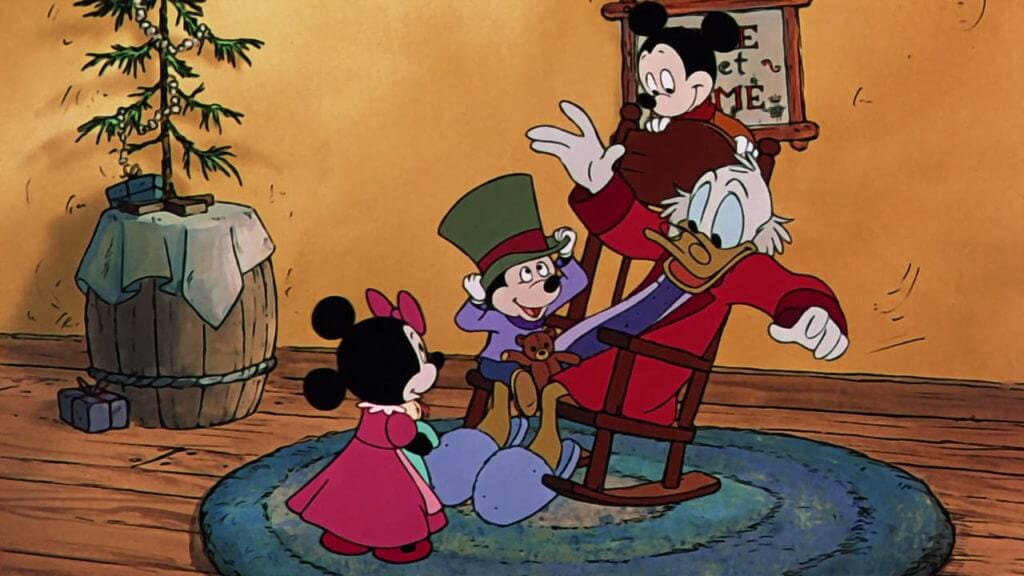
Mickey’s Christmas Carol (1983) – Starring Alan Young as Scrooge McDuck
It may seem strange to include this version, but I love it and consider it a must-watch every December. It’s fun, as a Disney fan, to pick out cameos like Mr. Toad and Jiminy Cricket, but what really amazes me about this short film is the music and the tone. There is an original theme song for the short titled “Oh, What a Merry Christmas Day” that’s sure to get stuck in your head, in addition to some traditional carols throughout. This short manages to keep the story’s darker elements intact – and it does so to tremendous effect. They don’t beat around the bush with Tim’s condition or Scrooge’s comments about the poor and destitute, and this film is only 26 minutes long without commercials! True, they do use shorthand to some extent, and we don’t get to see Scrooge make up with Fred (played by Clarence Nash as Donald Duck here), though he does announce his intention to do so. They also exaggerate some details quite a bit, such as showing Mickey as Bob with nothing but a pea to eat for dinner and having Scrooge bring the Cratchit children bags upon bags of gifts. However, this really doesn’t bother me; despite being a short TV special the whole family can watch together, this is a great little film, and one of my favorite versions. Doing a Disney version of this story could have so quickly turned into a gimmick, and it’s easy to imagine the creators playing it too safe. I consider the special, in its finished form, nothing short of a miracle.
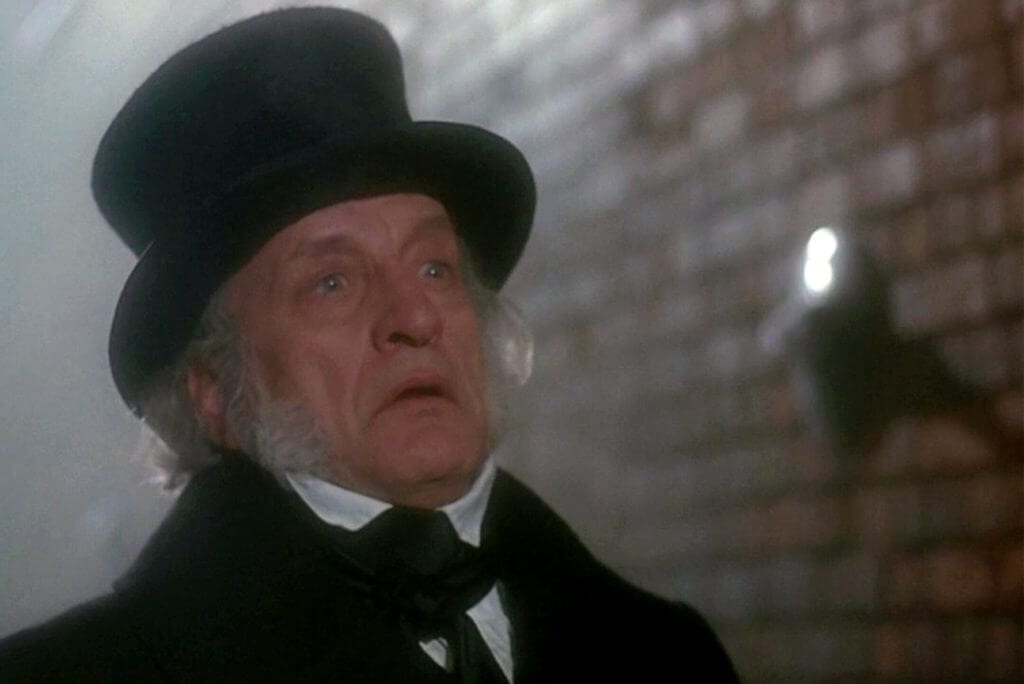
A Christmas Carol (1984) – Starring George C. Scott
It goes without saying that George C. Scott is an amazing actor, and I consider this, along with Patton, to be his defining performance. Scott portrays most effectively the change from bitter curmudgeon to a remorseful and, eventually, generous and compassionate man. Aside from being my favorite Scrooge, George C. Scott also benefits from a nearly perfect movie and stellar supporting cast. David Warner and Savannah York are fantastic as the Cratchits, and Anthony Walters is my favorite version of Tiny Tim. Angela Pleasance (daughter of Blofeld himself Donald) is memorably stern as the Ghost of Christmas Past, and Edward Woodward is amiably jovial as Christmas Present. The film’s original music by Nick Bacat is amazing and lush; nothing gets me into the Christmas spirit quite like the first musical flourish in this film after the “Old Marley was dead as a doornail…” narration. Everything from the costumes to the atmosphere is pitch-perfect, but the best aspects are the performances, the execution of Scrooge’s character arc, and the tone. This film balances holiday cheer and the consequences of Scrooge’s lack of empathy incredibly well. It’s astounding how Scott is able to make us feel bad for Scrooge and feel disdain for him at the same time; in this sense, we’re very much in the shoes of characters like Belle and Bob. The dialogue, straight from the book, is delivered in a way that feels both faithful and fresh. I don’t even know how to express how great this movie is; just that you need to see it for yourself. The most surprising thing about this film, at least to me, is that it was made for TV; it feels the most cinematic and compelling of the bunch. Every year I seek out and watch additional versions of A Christmas Carol, but this remains my favorite film version and favorite Scrooge performance.
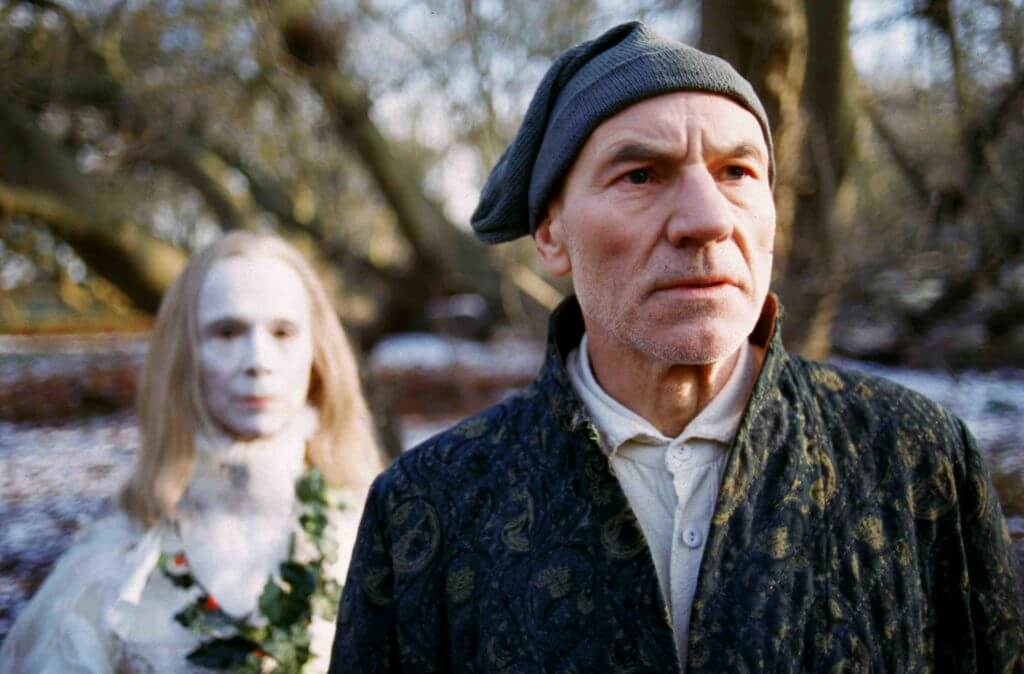
A Christmas Carol (1999) – Starring Patrick Stewart
This one is another TV production, but in this case, it’s more evident. The tone and production are best described as generic. I love Patrick Stewart, but I must say, this is the only performance from him I’ve ever disliked. Of course, like the other versions, Stewart’s Scrooge starts out as a grouch. However, his character development isn’t handled well at all, and thus, the resolution isn’t satisfying. Throughout the film, as Scrooge supposedly becomes kinder, Stewart plays him as reluctant. Even in the very end, when Scrooge performs acts of kindness such as buying the prized turkey, he looks pained. It’s like he keeps doing nice things out of conscious fear of the Spirits and memories of the night prior. This doesn’t really work for A Christmas Carol; it’s supposed to be a story about redemption and how we need to be compassionate to one another. Patrick Stewart is a fantastic actor, and other television versions on the list are amazing, so I’m not sure what went wrong here. But it’s a pretty serious disappointment.
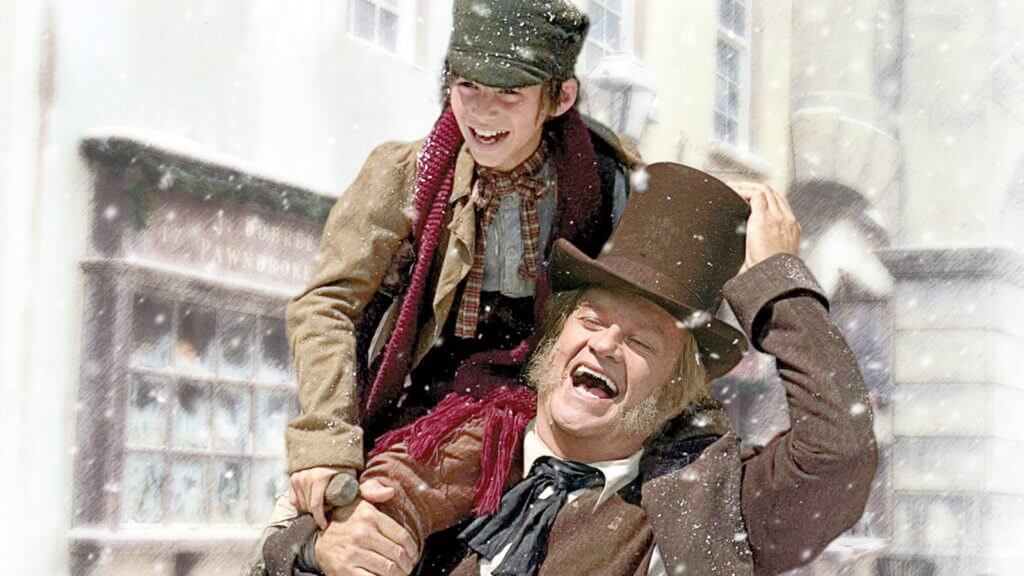
A Christmas Carol: The Musical (2004) – Starring Kelsey Grammer
This is another version that I didn’t much care for, but at least the message and themes aren’t muddled like in the 1999 version. It’s another musical version, and a TV movie by the Hallmark Channel. The songs by Alan Menken range from OK to pretty good, though some of them are too long, such as Marley’s “Link by Link.” Kelsey Grammer is another actor I like a lot, and he’s not bad here, but his performance isn’t anything to write home about either. Unlike Scrooge, it feels like this film doesn’t do much with the musical format. Actors like Jason Alexander as Marley also feel miscast, and overall, I’m not sure what the intention was here. The film is silly, but not funny. Attempts at sincerity end up coming off as saccharine, but not genuine. It isn’t horrible; it’s just bizarre and unsatisfying.
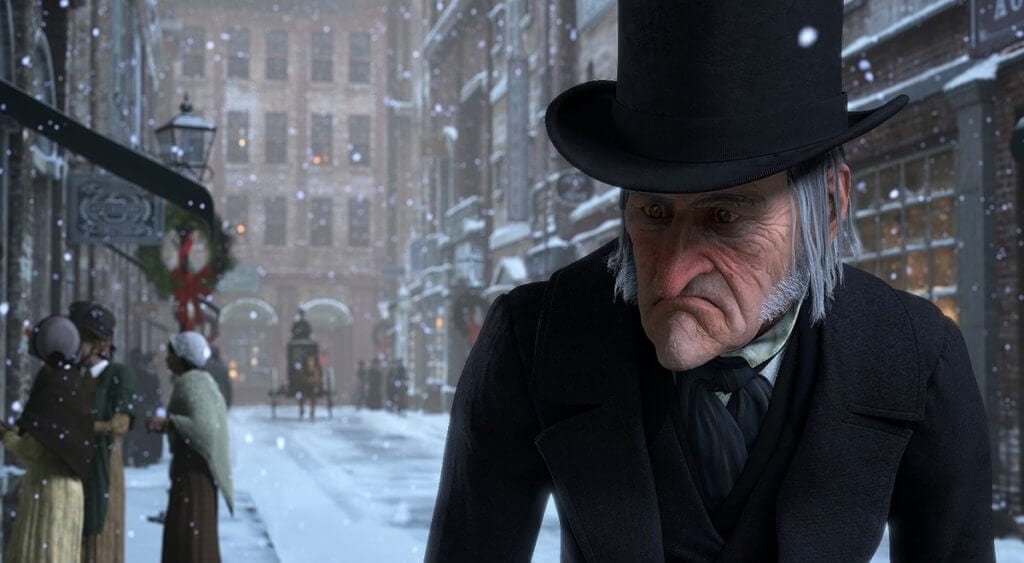
A Christmas Carol (2009) – Starring Jim Carrey
Disney’s second adaptation of the classic story was made with Robert Zemeckis and his trademark motion-capture animation. Jim Carrey is aged up like Albert Finney before him, albeit with digital effects rather than practical. I must say that, while there are a couple of versions of A Christmas Carol that I don’t care for, I like this one the least. Carrey overacts, as usual, the supporting cast is overshadowed by the creepy visual effects, and like much of Zemeckis’ recent work, the emotions are stunted. I’m not sure why they even wanted to make this film; aside from being part of the late-2000’s rash of mocap features, what does this movie have that the other versions haven’t done better? I will say that the score by Alan Silvestri is nice, and the film is quite colorful, but otherwise, this is one I’d skip for sure.
***
A Christmas Carol is definitely one of the essentials at Christmastime, and I really appreciate that there are so many versions to enjoy and compare. There are still versions I want to see, and there will doubtless be more through the years. What’s your favorite Christmas Carol, who’s your favorite Scrooge, and why? Drop your answer in the comments below. Merry Christmas!

